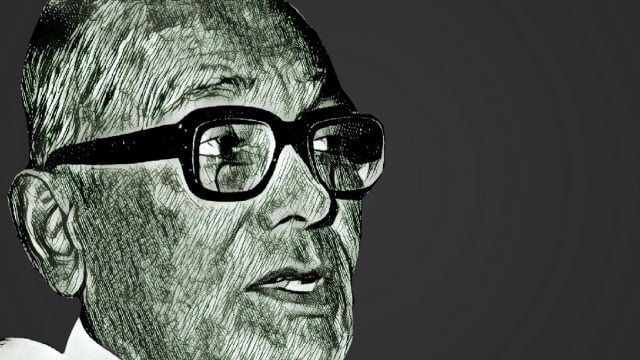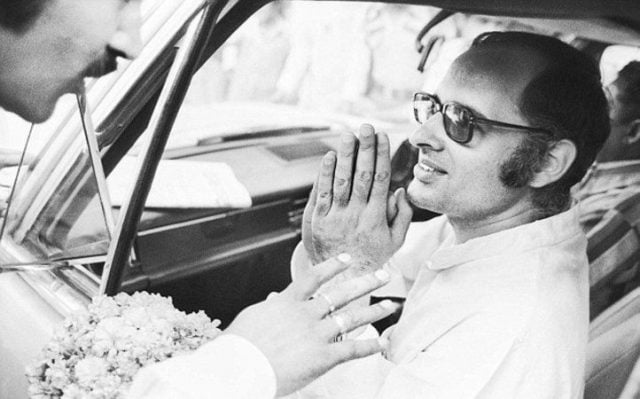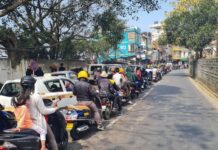Back in Time is ED’s newspaper-like column that reports an incident from the past as though it has happened just yesterday. It allows the reader to re-live it several years later, on the date it had occurred. Today, we take you back to the imposition of National Emergency by PM Indira Gandhi, a day that would live in infamy in Indian history.
June 25th, 1975: President Fakhruddin Ali Ahmed, on the written advice of Prime Minister Smt. Indira Gandhi and her cabinet, declared a state of Emergency across India on the stroke of midnight hour.
This proclamation followed months of civil unrest, public strikes, rising unemployment and more recently, the judgment of the Allahabad High Court in the Raj Narain case where her election as an MP was invalidated and was banned from contesting elections for five years.
“This is nothing to panic about,” said PM Gandhi in a nationwide radio address today. Citing an apparent conspiracy that was negating the functioning of the Indian democracy and the government’s progressive policies, PM Gandhi justified the imposition of National Emergency under Article 352 of the Indian constitution.
However, contrary to her promises to ensure the safety and protection of all citizens under the Constitution, the proclamation of Emergency was immediately followed by thousands of arrests across India, primarily of opposition leaders and political party workers.
These included not just leaders such as long-time rival Morarji Desai and Raj Narain but, also L.K. Advani, Atal Bihari Vajpayee and Jayaprakash Narayan, leaders who had led the massive political rally on the same day at the Ramlila Maidan on the 25th.

Arrests apart, the government has also clamped down on all media known to be critical of the government’s policies by cutting the supply of electricity to many and imposing a wave of censorship across them, threatening the fabric of free press India has enjoyed since independence.
Read: Back In Time: 27 Years Ago, Former Prime Minister Rajiv Gandhi’s Assassination Changed India
Reactions to the Emergency have been predictably mixed with Congress party workers welcoming the proclamation while much of the opposition, now fearful of state-sponsored retribution, criticizing the move and calling it as a blow to India’s democratic fabric.
The Communist Party of India has also come out in support of PM Indira Gandhi and the imposition of national emergency.

It is yet unclear as to what the proclamation means for the crises the government has been struggling with, whether it was the surge in prices or unemployment, the civil unrest and strikes or the HC judgment that had disqualified PM Gandhi.
However, according to sources within the Congress party, heir to the PM Sanjay Gandhi is all set to take a more national role in politics and implement a five-point welfare programme that includes family planning, destruction of illegal hutments for beautification, literacy etc.

Post-scriptum: The period from that black June night to 1977 was the darkest chapter in the history of India’s young democracy.
Under the garb of maintaining internal security and order, the ruling government twisted and molded the Constitution and laws for its own ends by ushering in a terrifying reign of illegal arrests, detentions, and media censorship.
By the time PM Indira Gandhi called off the National Emergency and called for fresh elections, her 1971 popularity was at an all-time low and she was dumped from power as perennial runner-up Morarji Desai finally became PM as a member of the opposition Janata Party.
The National Emergency of 1975 remains to this day, a blot on India’s democratic history, a sorry chapter in the future our nation’s fathers saw for India. It remains an important lesson not just for today’s leader and citizens but, for the future of India as well.
Image Sources: Google Images
Sources: Great Indian Speeches, Indian Express, The Hindu
Other Recommendations:
http://edtimes.in/2016/05/over-400-institutions-are-named-after-the-gandhi-family-is-this-only-a-gandhinehru-nation/

































